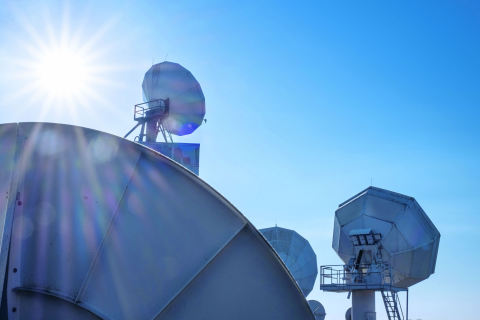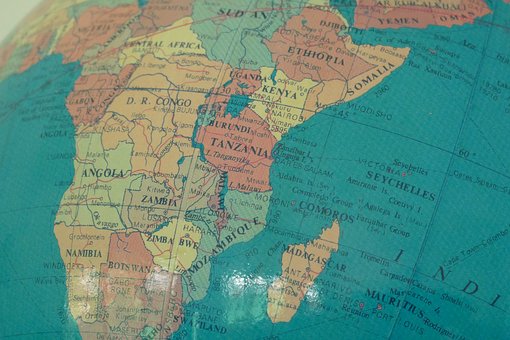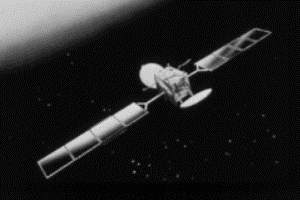Satellite connectivity services offer the chance to fill the gaps where traditional broadband and terrestrial mobile networks can’t reach, but the fighting over these potentially lucrative scraps of business is becoming more intense. Business technology journalist, Antony Savvas takes a look at the volatile satellite scene.
Viasat and Inmarsat
At the back-end of last year, Viasat said it intended to create one of the world’s largest satellite broadband providers through its planned acquisition of Inmarsat for US$7.3 billion (€7.16 billion).
The combined company would operate a total fleet of 19 satellites with the majority of them having being put up by Inmarsat – using various spectrum bands to deliver services. Further to this, another 10 satellites are under construction between the two firms.

Viasat said it wanted to complete the deal by mid-2022, but this has proved greatly optimistic, with various global regulators taking a close look at the deal as a result of competition concerns.
The regulators
The UK’s Competition and Markets Authority (CMA) is this week beginning its full review into the acquisition after receiving submissions from interested parties, to ascertain whether the proposed deal would substantially lessen competition within connectivity markets in the UK.
The CMA, along with other national regulators, is taking a much closer look into proposed technology takeovers, as many providers’ services are playing a much bigger role in our lives as the digital revolution speeds ahead. As a result, the Viasat/Inmarsat deal may struggle to get through.
Inmarsat points out that the US Committee on Foreign Investment has already approved the deal. But, it would, wouldn’t it? Seeing Viasat is a US firm planning to acquire a British firm’s valuable satellites in an increasingly valuable market, which also happen to support connectivity among military forces, any major government would be licking its lips in today’s geopolitical climate.
Service access

After Brexit, we also had the European Commission cutting off or limiting UK access to satellites launched by European organisations. As far as the UK government is concerned, it may be a bit twitchy about further potentially limiting its access to the finite resource that is satellite connectivity.
Viasat and Inmarsat are certainly set to become a political football, considering the European Commission has also recently announced an investigation into the deal, after a number of European Union member countries asked it to take a close look, including on satellite access grounds.
While parts of the satellite industry seem to be in consolidation, with SES and Intelsat reportedly looking at a merger, and Eutelsat and OneWeb looking to get it on too, you know there are valuable assets to be had when the world’s richest man starts to make waves in the market as well.
World’s richest man

Elon Musk’s SpaceX has gone to the US Federal Communications Commission (FCC) aboutthe Viasat/Inmarsat merger, complaining that Viasat should not be allowed to control Inmarsat’s ground terminals, because of alleged “spectrum licence violations”. Viasat, of course, says such claims are “baseless”.
In a perhaps sweet development following Musk’s opposition, the FCC has just ruled that SpaceX’s low-Earth orbit (LEO) satellite constellation could not supply the rural broadband services it was going to be paid to deliver through US government cash.
At the end of 2020, the FCC allocated an initial $5 billion (€4.91 billion) as part of its Rural Digital Opportunity Fund (RDOF). SpaceX’s Starlink offering was set to receive $885 million (€868.4 million) of this cash, but Starlink is not up to the job on data speeds, says the FCC.
Falling star
Starlink was supposed to deliver a 100/20 Mbps service to 645,000 hard-to-reach locations in 35 US states, but the FCC is clearly sceptical. It says Starlink has provided “inadequate proof” that it can comply with the requirements.
FCC chairwoman, Jessica Rosenworcel says: “We must put scarce universal service dollars to their best possible use as we move into a digital future that demands ever more powerful and faster networks.

“We cannot afford to subsidise ventures that are not delivering the promised speeds or are not likely to meet programme requirements.”
While the possibilities of satellite broadband services are clearly important in potentially serving the needs of consumers and key industry verticals operating in remote regions, it is good to see that legislators are making sure that providers operate in a truly open market and deliver what they promise.
African services
While other players look to space, traditional communications providers like BT can still serve the needs of developing economies on the ground. BT’s just-signed agreement with infrastructure firm SEACOM will see it support enterprise customers across Africa, with networking, security and communication services.
SEACOM launched its African east coast submarine cable in 2009, and installed a west coast one in 2012. Since then, it has expanded its land-based network footprint throughout Africa.

“The areas of secure multi-cloud connectivity, next-generation networking solutions and collaboration services are the sweet spot where SEACOM and BT will combine their respective strengths,” says Alessandro Adriani, director of system integrators and telecom service providers at BT’s Global unit.
The alliance will be supported by BT’s global security operations centres (SOCs), which have been expanded in number over recent years, perhaps giving the Global unit a much needed business boost after it has seen sales stagnate in more developed western markets.
The author is Antony Savvas, a global freelance business technology journalist.
Comment on this article below or via Twitter: @VanillaPlus OR @jcvplus






